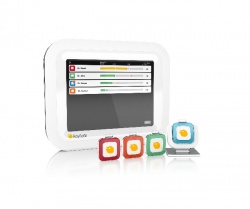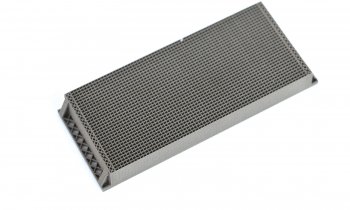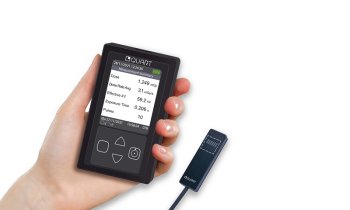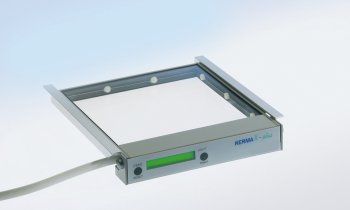Unfors introduces personal dosimetry system
RaySafe i2 active dosimeter gives medical staff real-time insight about their individual radiation exposure
During the European Congress of Radiology in Vienna 2012 Unfors RaySafe launched the RaySafe i2. By using RaySafe i2 during imaging procedures, medical personnel are able to get instant information on their current exposure to X-ray, giving them prerequisites to adjust their behavior to minimize unnecessary exposure.


Unfors RaySafe is the world’s only manufacturer of real-time personal dosimetry systems.
Studies presented at ECR and RSNA indicate a reduction in dose to personnel up to 40% by using Unfors RaySafe’s real-time dosimetry technology. Workplace efficiency and safety can be improved, and work processes streamlined, by facilitating the time-stamped, dose data collected by RaySafe i2.
“RaySafe i2 is proven to reduce staff dose, and makes it easy to work correctly and achieve a well-functioning radiation safety culture in hospitals” says Magnus Kristoferson, CEO of Unfors RaySafe.
The basic package comes with one real time display, 4 dosimeters, and can be extended with additional dosimeters and advanced data management software.
Unfors RaySafe, previously Unfors Instruments, also introduced its new name and canary logo at ECR.
“Like the canary in the coal mine helped miners avoid dangerous gases, the RaySafe solutions, now and in the future, will enable users to help themselves and others avoid unnecessary radiation. The RaySafe brand will better represent our mission and company as we continue to expand our solution portfolio”, says Magnus Kristoferson.
03.03.2012











